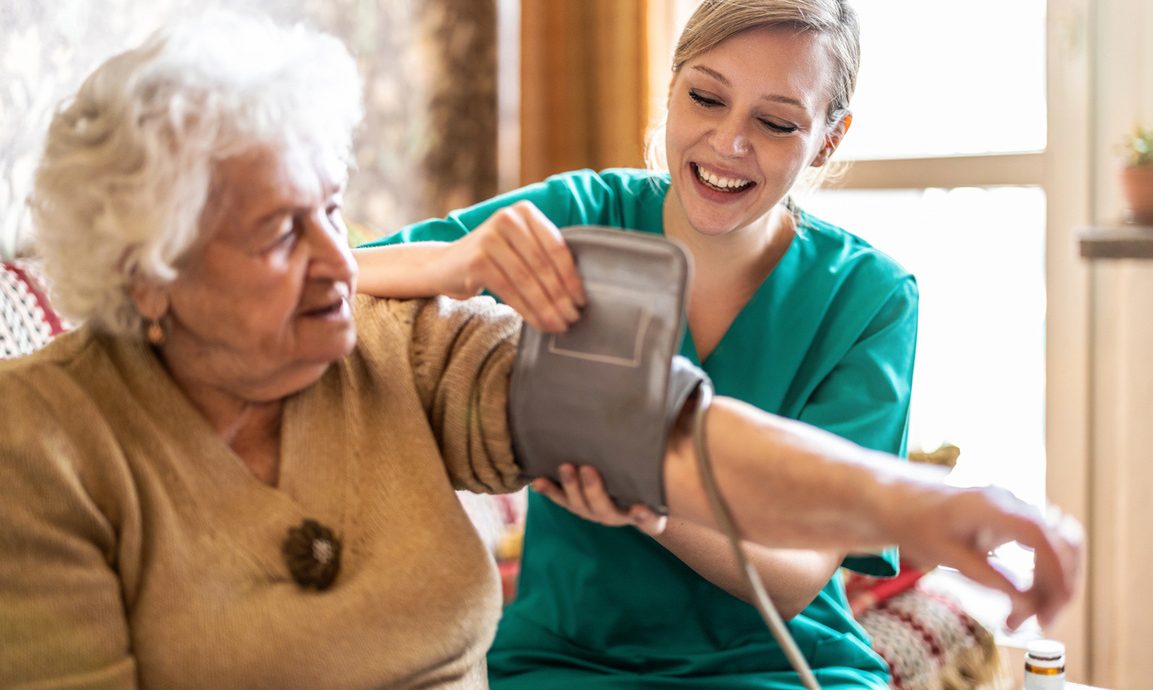
The Vital Role of Registered Nurses in Aged Care: What Families Should Know
When families begin exploring aged care options, they often focus on things like the location of the home, meals, activities, and daily routines. While all of these are important, one vital part of care that is sometimes overlooked is the role of the registered nurse (RN).
As aged care needs grow more complex, especially in both residential aged care and home care services, registered nurses play a central role in ensuring people receive the clinical support they need while still feeling valued, heard, and cared for as individuals.
At Whiddon, our RNs aren’t just skilled professionals. They’re trusted companions, advocates, and leaders in delivering person-centred care across all our aged care services.
Why Registered Nurses Are Essential in Aged Care
With more people living longer and managing chronic conditions, aged care is no longer just about day-to-day support. Today, older Australians often require clinical expertise to manage medications, prevent complications and support recovery from illness or injury.
That’s where registered nurses make a difference. Their presence ensures that residents and clients receive care that is not only compassionate but also safe, informed, and responsive to changing health needs.
The recent aged care reforms have also highlighted the importance of clinical governance and quality. Having experienced RNs on site is now a key measure of quality care, and it is something we’ve long prioritised.
Expertise and Compassion in One Role
So, what exactly do registered nurses do in an aged care setting?
From wound care and medication management to monitoring health conditions and developing care plans, RNs bring a wealth of clinical knowledge that supports resident and client wellbeing. They also play an important role in identifying early signs of health changes, which can prevent avoidable hospital visits.
But just as important as clinical expertise is compassion. RNs at Whiddon take time to build relationships with those they care for. They understand that each person’s story, preferences, and background shape how they want to be supported.
This thoughtful approach means care plans aren’t just medical, they’re personalised.
Supporting Residents and Families Every Step of the Way
For families, having a registered nurse involved in their loved one’s care can bring great peace of mind. RNs act as central points of contact, answering questions, coordinating with GPs and specialists, and ensuring continuity of care.
They advocate for residents and clients, helping make sure their needs are not only met but understood in the broader context of their wellbeing. They also support other staff members and provide mentorship to help the entire team deliver high-quality, respectful care.
In residential homes, this teamwork and oversight are especially important, as aged care needs may shift quickly or require close monitoring.
The Difference RNs Make in Home Care Services
While many people associate registered nurses with care homes, they also play a crucial role in home care services. In this setting, RNs support people who are choosing to remain home while managing more complex health needs.
Whether it’s follow-up care after a hospital stay, assistance with wound care, or managing medications, RNs provide essential support that allows people to stay safe, confident, and independent at home.
For families who access support at home, having a visiting nurse involved can provide reassurance and help them feel more connected to professional advice and guidance.
Registered Nurses and the Aged Care Reforms
The Australian Government’s ongoing aged care reforms have recognised the need for stronger clinical support across the sector. One major change is the requirement for residential aged care providers to ensure 24/7 registered nurse coverage.
At Whiddon, we’re proud to already meet this standard, with exemptions only at locations permitted due to size and regional classification. Our investment in skilled staff, clinical leadership and an award-winning relationship-based care model ensures that our community receives support that reflects not just the latest reforms, but our own high standards of care.
How Whiddon Supports RNs to Deliver Exceptional Care
Behind every great nurse is a supportive workplace. At Whiddon, we empower our registered nurses with ongoing training, strong leadership pathways, and a culture of collaboration.
They work closely with our allied health professionals, lifestyle teams and personal carers to deliver care that is holistic and individualised. Whether in a care home or providing personal care through our home care services, our RNs bring warmth, professionalism and purpose to every interaction.
If you are considering aged care for yourself or a loved one, understanding the role of the registered nurse can help you feel more confident and supported.
To learn more about how our RNs and broader care teams can support your journey, contact us today.




